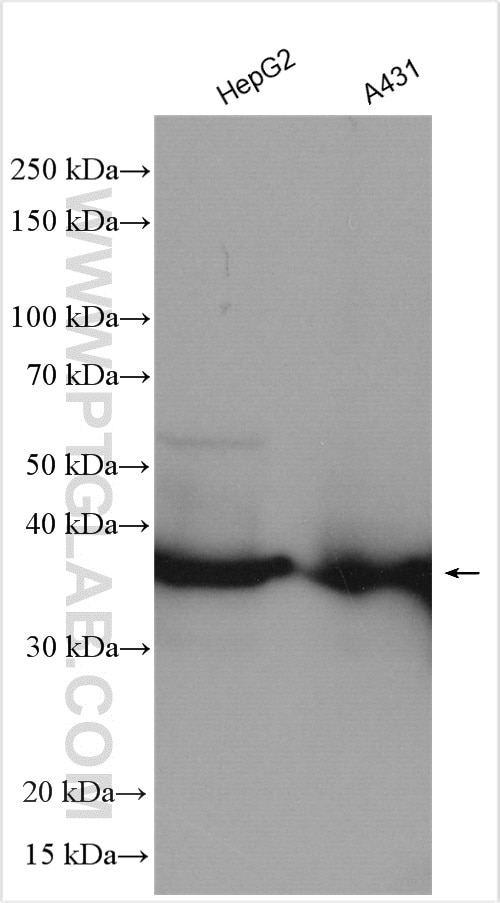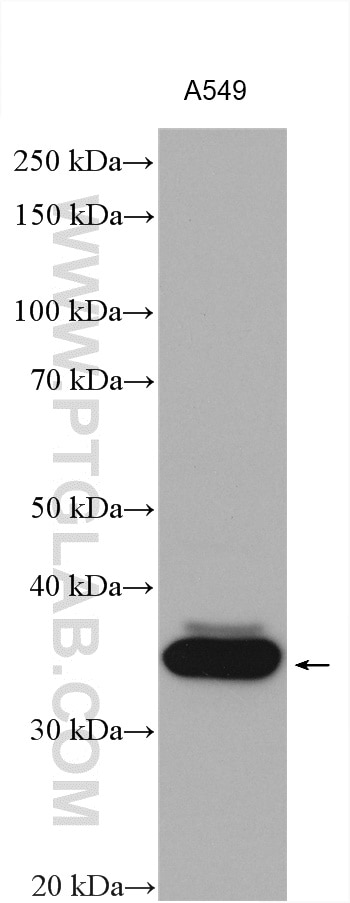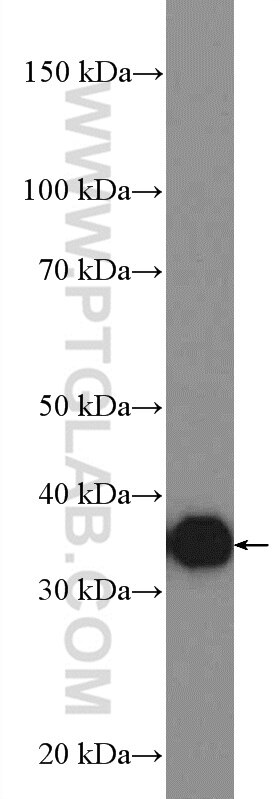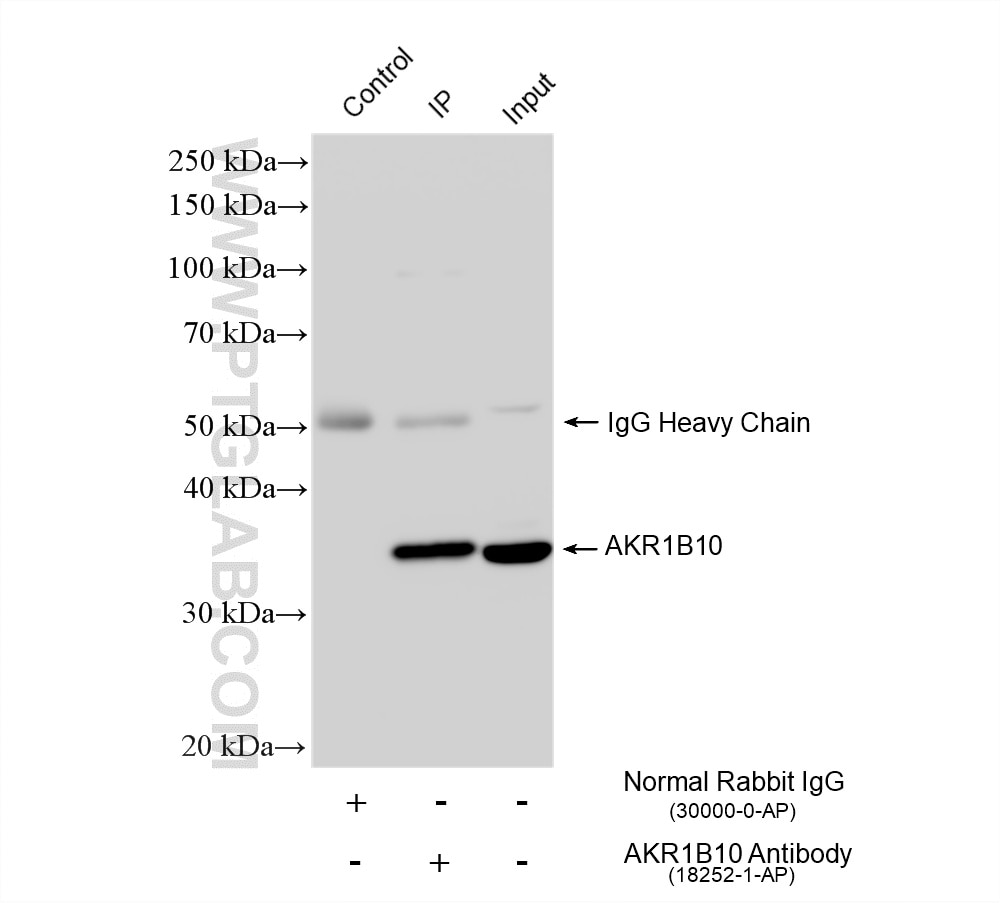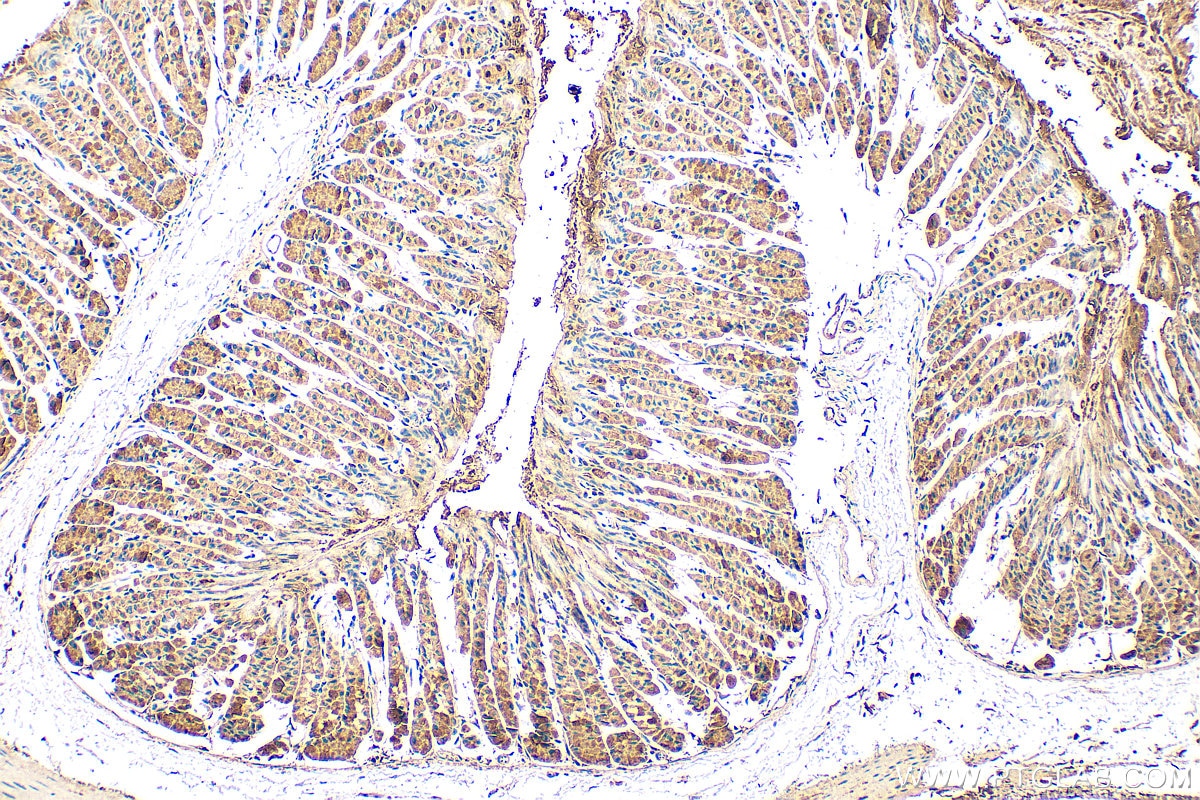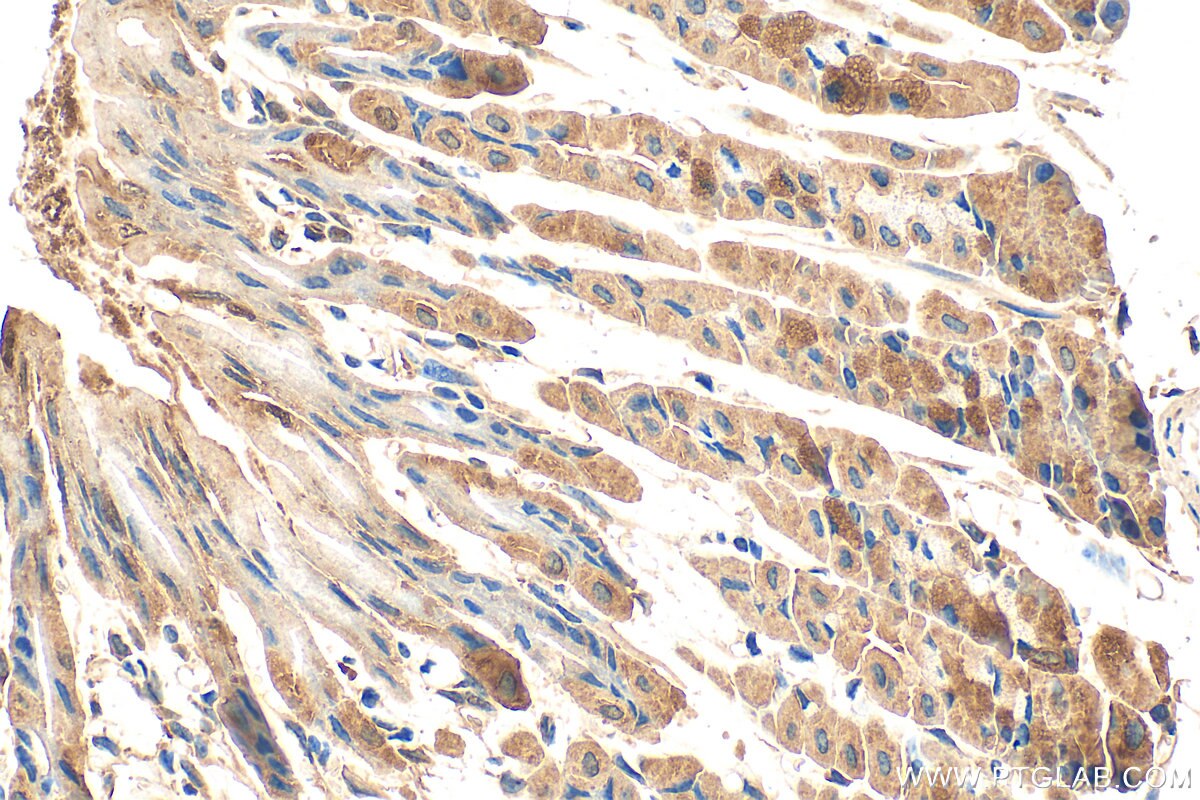AKR1B10 Polyklonaler Antikörper
AKR1B10 Polyklonal Antikörper für WB, IHC, IP, ELISA
Wirt / Isotyp
Kaninchen / IgG
Getestete Reaktivität
human, Maus, Ratte
Anwendung
WB, IHC, IP, ELISA
Konjugation
Unkonjugiert
Kat-Nr. : 18252-1-AP
Synonyme
Geprüfte Anwendungen
| Erfolgreiche Detektion in WB | A549-Zellen, A431-Zellen, HepG2-Zellen, Mauslebergewebe |
| Erfolgreiche IP | HepG2-Zellen |
| Erfolgreiche Detektion in IHC | Maus-Magengewebe Hinweis: Antigendemaskierung mit TE-Puffer pH 9,0 empfohlen. (*) Wahlweise kann die Antigendemaskierung auch mit Citratpuffer pH 6,0 erfolgen. |
Empfohlene Verdünnung
| Anwendung | Verdünnung |
|---|---|
| Western Blot (WB) | WB : 1:1000-1:4000 |
| Immunpräzipitation (IP) | IP : 0.5-4.0 ug for 1.0-3.0 mg of total protein lysate |
| Immunhistochemie (IHC) | IHC : 1:200-1:800 |
| It is recommended that this reagent should be titrated in each testing system to obtain optimal results. | |
| Sample-dependent, check data in validation data gallery | |
Veröffentlichte Anwendungen
| KD/KO | See 1 publications below |
| WB | See 2 publications below |
Produktinformation
18252-1-AP bindet in WB, IHC, IP, ELISA AKR1B10 und zeigt Reaktivität mit human, Maus, Ratten
| Getestete Reaktivität | human, Maus, Ratte |
| In Publikationen genannte Reaktivität | human, Maus |
| Wirt / Isotyp | Kaninchen / IgG |
| Klonalität | Polyklonal |
| Typ | Antikörper |
| Immunogen | AKR1B10 fusion protein Ag13042 |
| Vollständiger Name | aldo-keto reductase family 1, member B10 (aldose reductase) |
| Berechnetes Molekulargewicht | 316 aa, 36 kDa |
| Beobachtetes Molekulargewicht | 35 kDa |
| GenBank-Zugangsnummer | BC008837 |
| Gene symbol | AKR1B10 |
| Gene ID (NCBI) | 57016 |
| Konjugation | Unkonjugiert |
| Form | Liquid |
| Reinigungsmethode | Antigen-Affinitätsreinigung |
| Lagerungspuffer | PBS with 0.02% sodium azide and 50% glycerol |
| Lagerungsbedingungen | Bei -20°C lagern. Nach dem Versand ein Jahr lang stabil Aliquotieren ist bei -20oC Lagerung nicht notwendig. 20ul Größen enthalten 0,1% BSA. |
Hintergrundinformationen
Aldo-keto reductase family 1 member B10 (AKR1B10) is a member of the AKR1B subfamily. It is mainly found in cytoplasm, and it is typically expressed in the stomach and intestines. Given that its expression is low or absent in other tissues, AKR1B10 is a potential diagnostic and therapeutic biomarker for various digestive system diseases.
Protokolle
| PRODUKTSPEZIFISCHE PROTOKOLLE | |
|---|---|
| WB protocol for AKR1B10 antibody 18252-1-AP | Protokoll herunterladen |
| IP protocol for AKR1B10 antibody 18252-1-AP | Protokoll herunterladen |
| STANDARD-PROTOKOLLE | |
|---|---|
| Klicken Sie hier, um unsere Standardprotokolle anzuzeigen |
Publikationen
| Species | Application | Title |
|---|---|---|
J Pharmacol Exp Ther Mechanistic Analysis of an Extracellular Signal-Regulated Kinase 2-Interacting Compound that Inhibits Mutant BRAF-Expressing Melanoma Cells by Inducing Oxidative Stress. | ||
J Ethnopharmacol Berberine directly targets AKR1B10 protein to modulate lipid and glucose metabolism disorders in NAFLD
|
Rezensionen
The reviews below have been submitted by verified Proteintech customers who received an incentive for providing their feedback.
FH Shinford (Verified Customer) (10-26-2023) | In tissues, we detected bands at different positions, but in cancer cell lines, the bands appeared notably clearer. The optimal concentration was determined to be higher, specifically at 1:1000.
 |
